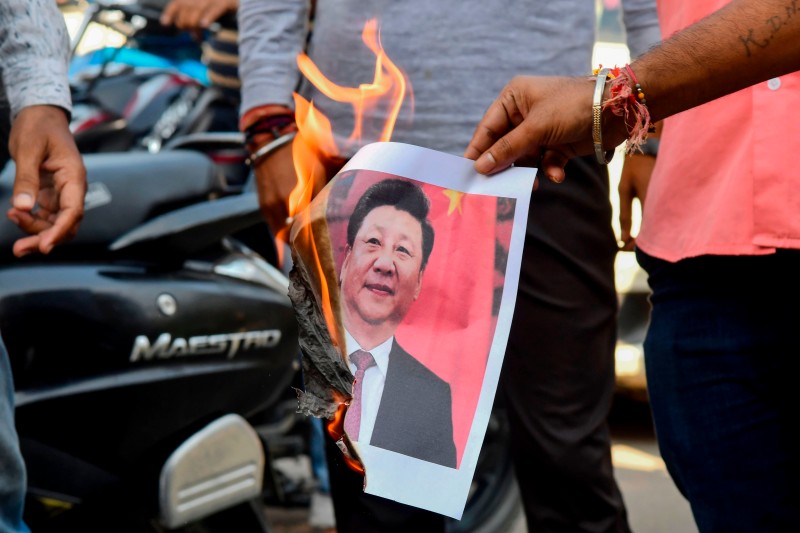India Must Tighten Its Regulatory Control on Chinese Companies Operating Within

Chinese smartphone maker Xiaomi Corp has come under intense regulatory Control in the Indian market, this may raise concerns by Communist Chinese authorities. However this is essential to control their various activities detrimental to India’s economic security.
Xiaomi a top Chinese company went to the extreme of alleging that its top executives faced threats of “physical violence” and coercion during questioning by Indian officials. This kind of baseless white lie was at once denied by the Enforcement Directorate which on Saturday issued a statement saying the allegations “are untrue and baseless”. Well Chinese companies are known for making such accusation, India being a strong democracy is not bothered by such wild tantrums.
Ever since Indian tax authorities raided Xiaomi’s India offices in December based on strong evidences, the company has been is trying its best to embroil the Enforcement Directorate in a tax tussle. Known for their unethical and illegal practices, the Chinese Companies think that they can get away as they have been getting away in various other Countries. The Enforce Directorate has caught Xiaomi over its ilkegal remittance to foreign-based entities. And judging by the latest media reporting, it is clear to say that Xiaomi hasn’t been able to effectively with hoodwink the Indian regulators.
China has already started to claim that India is intentionally targeting Xiaomi now, uncertainty surrounding Xiaomi’s predicament should raise a red flag for China’s Belt and Road ambitions in various Asian and African countries. This is because what has been done by Xiaomi could be seen as another example of Chinese nefarious design to Control the economy of a Country. crackdown on Chinese companies has completely exposed their illegal and unethical practices.
Such kind of business activities would lead to detailed scrutiny of more Chinese companies and subject them to growing regulatory scrutiny in the Indian market in the future. If anything, the impression that Chinese and other foreign companies can get away with their intentional unethical activities isn’t something good or favorable for their access to the vast Indian and SARC market.
There is no denying that by India’s economy has fared extremely well in the past few years. India ‘s overall exports hit an all-time high of $675 billion in 2021-22, while the Goods and Services Tax collection in April set a new record, with its manufacturing PMI standing at 54.7, all pointing to a revival of the economy. The IMF projected that India is likely to become the worlds fastest growing major economy in 2022 with a growth rate of higher than 8 percent. It is very encouraging for the world to see India to continue to recover quickly from the pandemic-induced woes.
Nevertheless, India still faces the long-term challenge of developing its manufacturing sector, and attracting foreign investment is one of the priorities in moving toward this goal. Foreign companies are certainly invited to invest in India.However I it is of great importance for Foreign investors to maintain normal and effective communication and coordination with Tax and other authorities and also refrain from unethical practices.
Some in China might argue India is carrying out a “selected crackdown” on Chinese companies and interpreting it as India’s hostility toward Chinese companies.
Well they should know about the Indian policy of encouraging foreign investment. Also at the same time they should note that India will not permit foreign investment at the risk of its security. The way China has behaved in Galwan, they should be fully aware that there cannot be business as usual. All Chinese firms will be under intense scrutiny and no leeway will be granted.
Neighbors cannot be altered but for effective economic and trade cooperation which is in the interests of both countries and their huge populations, China has to first vacate occupied Ladhak, then resolve the Indo Tibetan Boundary both on ground and on map. Finally the border between China and Tibet too has to marked physically and on map.
Judging from new global trade relationships developing over the past few years, the biggest opportunity for India is to consolidate and enhance its positions in the global industrial chain. For this India is not competing with China or any other country but just creating better infrastructure and other working conditions. It is China which must ensure cooperation by resolving all Boundary issues first, otherwise it will cause unnecessary distraction and friction for both economies, hurting the growth prospects of the worlds two largest emerging market powers.
The same logic also applies to China-India relationship in the global geopolitical arena. As long as China and India are on the same page when it comes to major geopolitical eruptions, their voices will become bigger and be heard by the established powers. For this also to happen the boundary issue has to be resolved first.
Of course, this may not be the trend the strategists In some part of the World would like to see, because some powers only aspire to see more competition and rivalry, rather than cooperation and partnership, between the two largest developing economies in the World. After all just till 500 years back, India’s GDP was more than 25% of the World’s with China following close behind.




